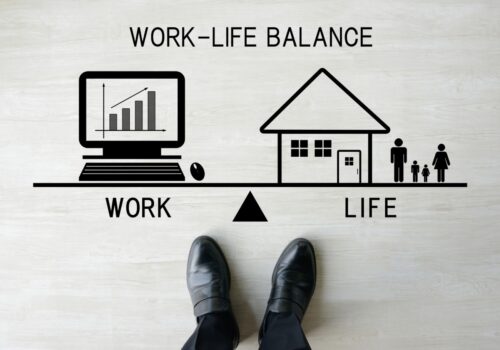Coping with a difficult boss is challenging, and you might face one in your career. A study in 2022 showed how 60% of employees are unhappy with their job because there will always be that one boss who is never pleased with anything you do. They may have trust issues, and keep looking for mistakes in your work, regardless of how efficient you may be. Whatever you say seems to rub them the wrong way, and although their behavior could be a symptom of their psychological issues, you need to know how to deal with it. Quitting is not the solution because you might end up in a similar situation again; what’s necessary is understanding your boss, identifying his triggers, and learning how to deal with the situation.
Why You Need to Deal With a Difficult Boss
The relationship between you and a supervisor is extremely important for the workplace and your career. If it goes wrong, it could mar your prospects and be a constant source of trauma and tension in life. Not acting upon the situation of a bad boss could end up badly with you being termed unsuitable for the job, a poor team player, and possibly end in terminating your services. However, the best action is working through the situation towards a more positive outcome. There are many benefits to rectifying the situation of a bad boss, such as:
- Less stress
- Fewer chances of falling ill from mental pressure
- Work satisfaction
- Improves workplace relationships
- Provides a chance for promotion and advancement
- This could lead to a change in your supervisor’s attitude
- Work gets done faster
How to Deal With a Difficult Boss
To help you build a positive relationship with a distant and unresponsive boss, you could try following these 8 strategies to make your environment positive.
- Identify the triggers and warning signs
- Improve and initiate
- Focus on priorities
- Be more efficient and show consistent performance
- Be the problem solver
- Build relationships and better communication
- Respect your boss’s leadership
- Learn to adapt and be professional
1. Identify the Triggers and Warning Signs
A boss with a negative attitude change will display a pattern of behavior showing how he might feel you aren’t doing enough.
A disgruntled boss might ask you to come 5 or 10 minutes early. Despite knowing your efficiency level, they might question whether minor aspects of the job are completed. This becomes evident, especially when you try to communicate about parts of an ongoing project. Your boss might ask questions with an attitude to insinuate how you should be concerned if all parts of the project are taken care of before suggesting something new.
A boss who wants to find fault will always keep checking in on you, frequently demanding updates. They might interrupt you during presentations and begin speaking, which is not a good sign. You might not be called to attend certain meetings and might be deputed an assistant to help you with work. Sometimes, this is a way of showing you aren’t perceived as capable or inefficient, which is why you need help. The situation might turn extreme if you begin to get negative assessment reviews, in which case you need to act fast to turn things around.
2. Improve and Initiate
Take the initiative and schedule one-on-one meetings with your boss to show how eager you are to discuss work projects and concerns that impact work. Show your boss how you value his opinions and suggestions, and always welcome feedback. Please pay attention when they speak and look for opportunities to do something more than your responsibilities in line with your company goals.
3. Focus on Priorities
As much as you focus on priorities, try to understand them. Align your priorities with those of your boss and assign importance accordingly. Work towards a common vision and make extra effort to show how you are committed to the success of the project and organization. Demonstrating common objectives helps your boss warm up to you.
4. Be More Efficient and Show Consistent Performance
Even though you may be efficient, you might sometimes need to go that extra mile to deliver superb quality work and meet deadlines without fail. Reliability and competence are essential traits that build trust with your boss. Demonstrating your efficiency and commitment will earn their respect and pave the way for a more positive relationship.
5. Be the Problem Solver
A solution-oriented employee is a boon for any company, and it’s hard for your boss not to acknowledge you when you are a good problem solver. When facing challenges or obstacles, focus on providing potential solutions rather than dwelling on the problems. Be creative in your solutions and provide well-thought-out ones that are not hard to implement. You need to prove how valuable you are as an asset to the team.
6. Build Relationships and Better Communication
Good and healthy communication is the key to a healthy working environment. Building positive relationships with your colleagues and show your boss how eager you are to get along with others. When you contribute a harmonious atmosphere to the workplace that cultivates productivity, your boss is bound to recognize your contribution.
7. Respect Your Boss’s Leadership
Every boss has a unique leadership style. It would help if you tried to understand how your boss operates, what makes him tick, his social triggers, and how or why they behave the way they do. Observing his social behavior will give you psychological insight into how to behave or interact.
8. Learn to Adapt and Be Professional
Adapt your communication and work approach to suit their preferences. If they prefer concise updates, be brief and to the point. If they value data-driven decisions, back your proposals with relevant data. By adapting your work to your boss’s style, you show your cooperative nature, and they will have less to complain about. One of the most important things you can do when dealing with a disgruntled boss is never to gossip or complain about them to other colleagues. You never know how it might fall back on you. The problem is immediate between you and your boss, so keep it that way.
You need to realize that cultivating a positive relationship with your boss takes time and patience. It would help to remain committed and firm in resolving any problematic situation. Taking the first step in building a healthy working relationship with a boss displays maturity and professionalism, and none can find fault.
















